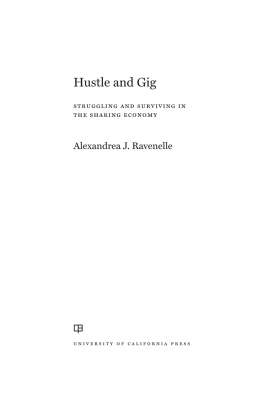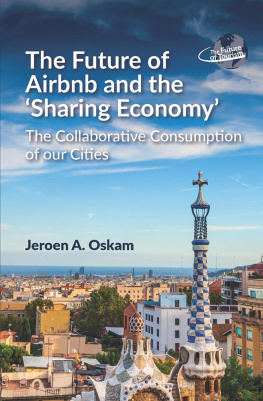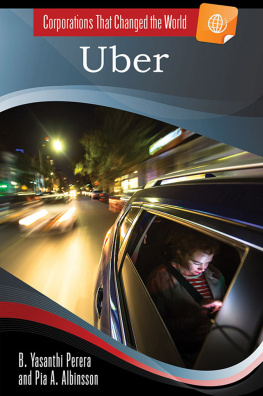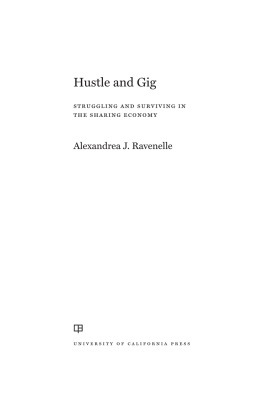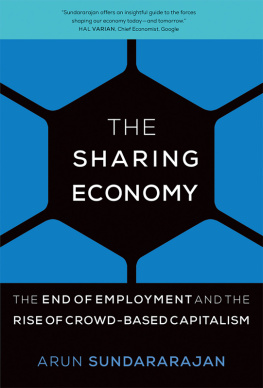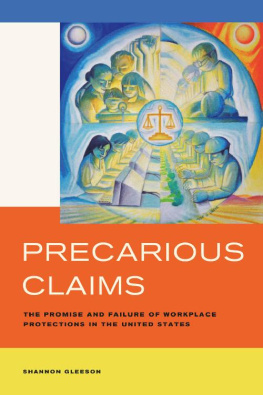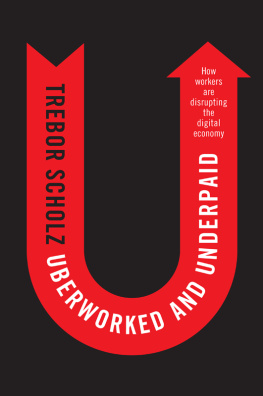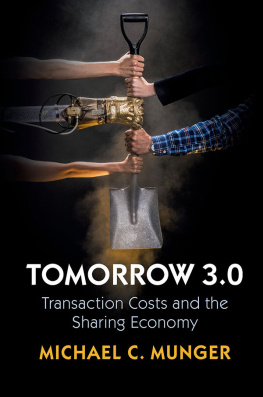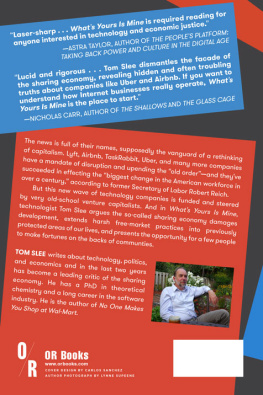Ravenelle - Hustle and gig: struggling and surviving in the sharing economy
Here you can read online Ravenelle - Hustle and gig: struggling and surviving in the sharing economy full text of the book (entire story) in english for free. Download pdf and epub, get meaning, cover and reviews about this ebook. City: Oakland;California, year: 2019, publisher: University of California Press, genre: Home and family. Description of the work, (preface) as well as reviews are available. Best literature library LitArk.com created for fans of good reading and offers a wide selection of genres:
Romance novel
Science fiction
Adventure
Detective
Science
History
Home and family
Prose
Art
Politics
Computer
Non-fiction
Religion
Business
Children
Humor
Choose a favorite category and find really read worthwhile books. Enjoy immersion in the world of imagination, feel the emotions of the characters or learn something new for yourself, make an fascinating discovery.
- Book:Hustle and gig: struggling and surviving in the sharing economy
- Author:
- Publisher:University of California Press
- Genre:
- Year:2019
- City:Oakland;California
- Rating:3 / 5
- Favourites:Add to favourites
- Your mark:
Hustle and gig: struggling and surviving in the sharing economy: summary, description and annotation
We offer to read an annotation, description, summary or preface (depends on what the author of the book "Hustle and gig: struggling and surviving in the sharing economy" wrote himself). If you haven't found the necessary information about the book — write in the comments, we will try to find it.
InHustle and Gig, Alexandrea J. Ravenelle shares the personal stories of nearly eighty predominantly millennial workers from Airbnb, Uber, TaskRabbit, and Kitchensurfing. Their stories underline the volatility of working in the gig economy: the autonomy these young workers expected has been usurped by the need to maintain algorithm-approved acceptance and response rates. The sharing economy upends generations of workplace protections such as worker safety; workplace protections around discrimination and sexual harassment; the right to unionize; and the right to redress for injuries. Discerning three types of gig economy workers--Success Stories, who have used the gig economy to create the life they want; Strugglers, who cant make ends meet; and Strivers, who have stable jobs and use the sharing economy for extra cash--Ravenelle examines the costs, benefits, and societal impact of this new economic movement. Poignant and evocative,Hustle and Gigexposes how the gig economy is the millennials version of minimum-wage precarious work.
Ravenelle: author's other books
Who wrote Hustle and gig: struggling and surviving in the sharing economy? Find out the surname, the name of the author of the book and a list of all author's works by series.

